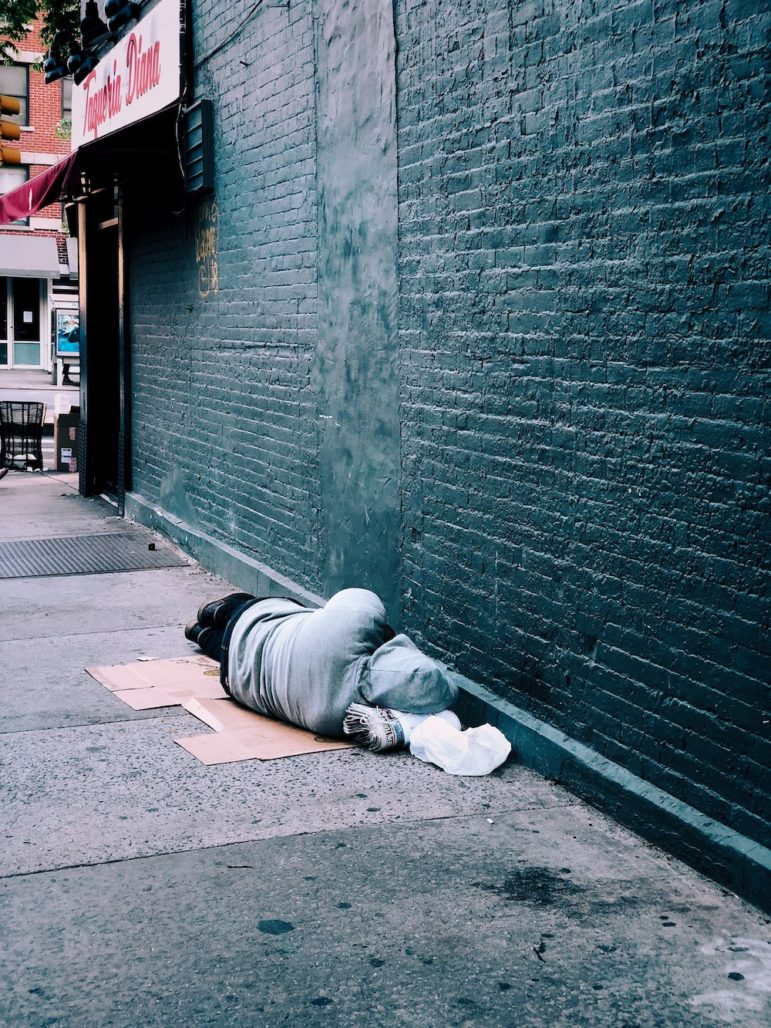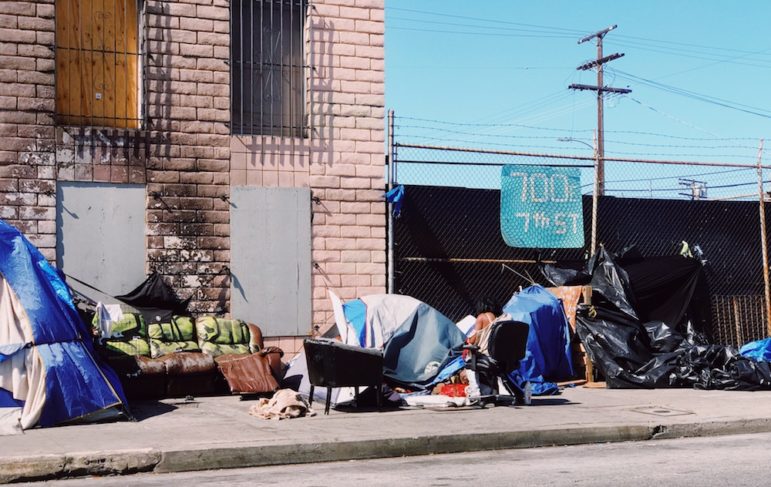
Chronic homelessness in Marin County has declined 28 percent since 2017, the Marin County Department of Health and Human Services announced Wednesday at a news conference in San Rafael. The 28-percent figure is preliminary and final figures on the results of the county’s point-in-time homeless count on Jan. 28 will be available in July, county health officials said.
County homeless policy analyst Ashley Hart McIntyre and homeless program coordinator Carrie Ellen Sager attributed the 28 percent drop in chronic homelessness to the county’s system-wide Housing First approach which is considered the most effective way to address chronic homelessness.
Housing First prioritizes the most vulnerable of the homeless population. “We needed to shift our focus to the most vulnerable, most visible and most complex population to drastically improve health outcomes,” McIntyre said. “We’re thrilled that our preliminary count numbers confirm what studies have shown to be true: Housing highly vulnerable people is the solution to chronic homelessness.”
The Marin County Department of Health and Human Services and its partners have housed 128 chronically homeless residents since October 2017. The 2019 point-in-time count found 257 people to be chronically homeless. Eighty-six were in an emergency shelter on the night of the Jan. 28 count, and 171 were unsheltered. The unsheltered chronically homeless population has dropped 41 percent since 2017, according to county health officials.

The decrease shows Marin’s emergency shelters are reaching a more vulnerable population than ever before, county health officials said. The preliminary January 2019 count also indicated family homelessness decreased 28 percent, youth homelessness fell 10 percent, homelessness among people with serious mental illness decreased 40 percent and homelessness among people with substance abuse disorders dropped by 10 percent.
County health officials said the cost of leaving a chronically homeless person on the street is $60,000 a year when considering the costs of hospitals, the court system, criminal justice and other public systems. The cost of providing permanent supportive housing for a chronically homeless person is roughly $25,000 a year, according to the health officials. Sager said the county’s nonprofit partners “do the difficult work of implementing these best practices day-to-day and meeting the needs of complex clients.”